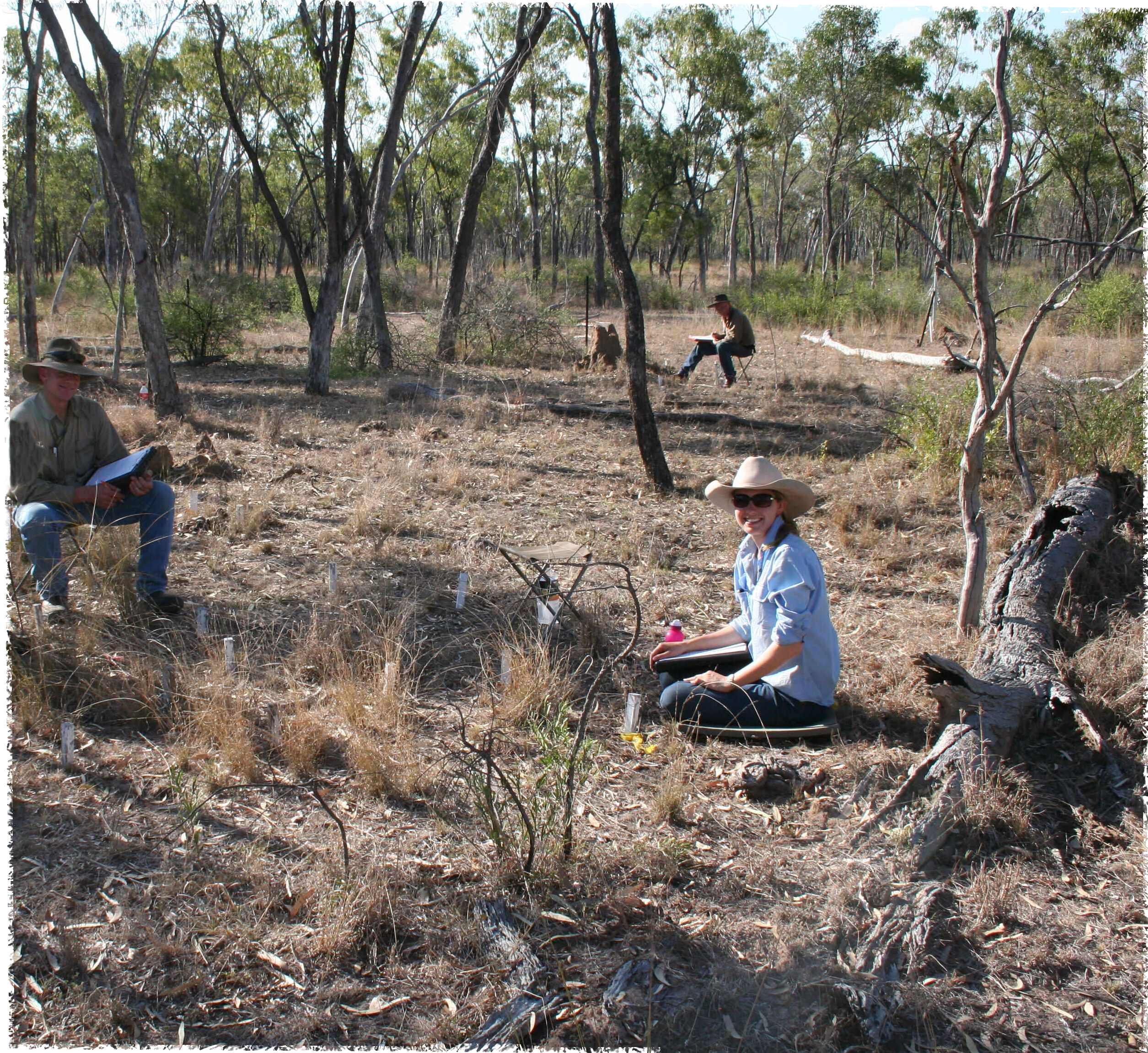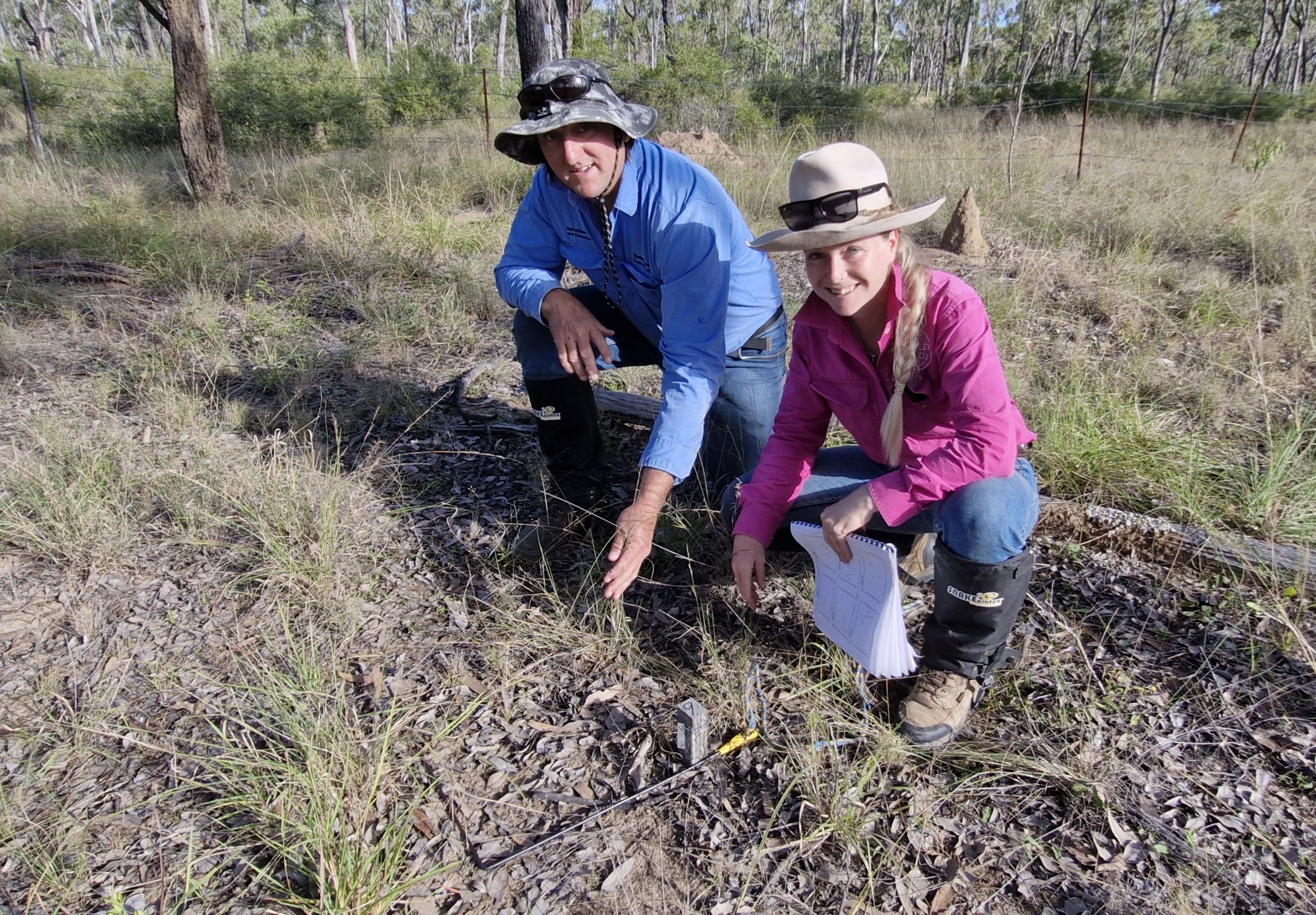Give it a rest — how spelling brings country back to life
If you’re managing tired paddocks and wondering how to bring them back to life, research from the long-running Wambiana grazing trial offers some clear answers. It’s not high-tech or expensive — it’s about resting your country or spelling. It means giving paddocks a break during the growing season, and it will lead to recovery in pasture condition over time.
The study was started in 2011 by the late Paul Jones on the Wambiana trial. It aimed to identify the fastest way to recover poor (C) condition native pastures using different spelling regimes under different stocking rates. The trial focussed particularly on desert bluegrass (Bothriochloa ewartiana) one of the most important native grasses in forest country.
The work was done under real grazing conditions — heavy and moderate stocking — with plots either:
- Not spelled
- Spelled for the early or full wet season, either
- Every wet season or
- Every second wet season.
Hundreds of individual grass plants were tagged in 2011 and then monitored over the next 14 years, with rainfall ranging from crippling drought to excellent wet seasons. Paul Jones tragically passed away in 2024 but the work is being continued by Brad Hough, the new project leader. This year Brad and his team were busy remeasuring the individual grasses in the different treatments.


What the results say
Rainfall matters — but the key to recovery is wet season spelling combined with the right stocking rate.
Other findings include:
- Heavy stocking amplifies drought impact: in the 2014-15 drought, about 70% of grasses died under heavy stocking vs 40% under moderate stocking.
- Little recovery happened in the first 8 years, even with spelling. But once rainfall/seasonal conditions improved and spelling continued, recovery accelerated — especially with moderate stocking and annual wet season rests.
- There was no benefit from spelling under heavy stocking, that is simply resting paddocks and then continually overgrazing them will not allow recovery.
- Established plants are key: most recovery came from existing desert bluegrass plants present when the trial started. Relatively few new seedlings made it through to adulthood, even in good years. Protect your good perennial grasses.
- Full wet season spelling worked best, but a shorter, early season spell when plants are most vulnerable was also beneficial.
Key takeaways for grazing managers
✅ Get your stocking rate right: heavy stocking rates, especially in drought, will kill off your best grasses and lower long-term carrying capacity.
✅ Schedule some rest every wet season: the best recovery came from annual wet season spelling under moderate stocking. This suggests that the best recovery occurs with rotational grazing approaches.
✅ Be patient: recovery can initially be slow but will gain momentum and accelerate over time. It may take a few years for the benefits to stack up, but they do.
✅ Protect existing plants: these are the foundation for recovery, so looking after them during tough seasons is essential.
What you can do now
- Start with your worst paddocks and commit to spelling them during the wet season.
- Monitor your key perennials such as desert bluegrass and see how they respond.
- Adjust stocking rates across the rest of the property to give one area a chance to rest properly.
- Think long-term: this is a marathon, not a sprint. But the benefits are real — more ground cover, increased carrying capacity, better production, and increased drought resilience.
For more detail please contact Brad Hough at brad.hough@dpi.qld.gov.au or 0499 850 158
This work is continued through the Queensland Pasture Resilience Program which is a partnership between the Department of Primary Industries, Meat & Livestock Australia and the Australian Government through the MLA Donor Company.